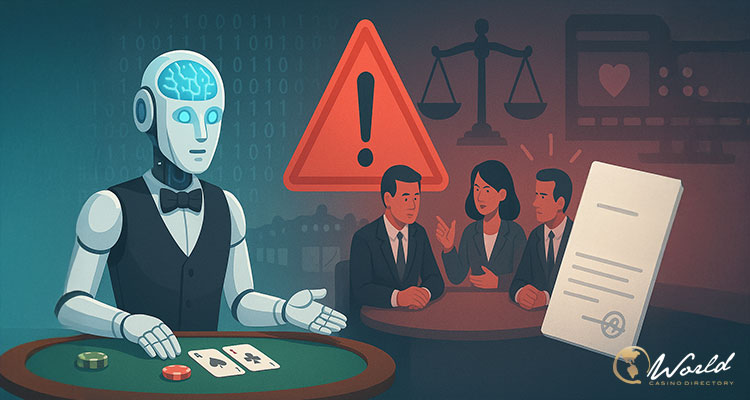As the gambling sector approaches a projected value of over $876 billion by 2026, academics and regulators are voicing growing concerns over the unregulated use of artificial intelligence (AI) technologies across casino floors, online platforms, and sports betting operations. A new academic study has brought renewed attention to the potential for AI to amplify gambling-related harms if left unchecked.
Researchers warn of AI-driven risks in the evolving gambling industry:
Published in the International Journal of Hospitality & Tourism Administration, the study, co-authored by Dr. Nasim Binesh of the University of Florida and Dr. Kasra Ghaharian of the University of Nevada, Las Vegas, explores the ethical dimensions of AI deployment in gambling environments. Their findings emphasize the urgent need for industry-specific guidelines to ensure the safe and responsible use of these powerful technologies.
“The potential for AI to exacerbate gambling harms and exploit vulnerable individuals is a stark reality that demands immediate and informed action,” said Binesh. “The study’s call for the clear use of AI guidelines is not just a recommendation; it is imperative for the future of ethical gambling.”
Binesh and Ghaharian’s review of current literature uncovered six critical themes shaping the conversation around AI and gambling ethics: Explainability, Exploitation, Algorithmic Flaws, Consumer Rights, Accountability, and Human-in-the-Loop oversight. Their analysis highlights the technology’s double-edged nature—it can either reduce harm or magnify risk depending on how it is developed and used.
According to the study, AI has significant potential to enhance player protection by recognizing early indicators of addiction, spotting fraudulent activity, and detecting cheating behavior. Yet without strong regulatory frameworks in place, these benefits may go unrealized.
“AI’s potential to enhance consumer protection by identifying at-risk behaviors and intervening appropriately is well acknowledged,” said Binesh. “Yet, without regulation, these technologies could be underused or misapplied, missing critical interventions and failing to mitigate harms with gambling.”
The study recommends several key measures for ethical oversight: employing independent auditors to review AI systems for compliance, providing specialized training to developers working with vulnerable groups, ensuring transparency in AI-generated gaming outcomes, and informing users about how their personal data is collected and used.
Policy gaps and industry-wide responsibility:
Despite growing concerns, few legal safeguards currently exist. The U.S. Blueprint for an AI Bill of Rights and the European Union AI Act are among the first governmental efforts to regulate AI—but these frameworks are broad and not tailored to the gambling industry. As of March 2025, the International Gaming Standards Association’s Ethical AI Standards Committee has taken steps toward creating sector-specific best practices, but this initiative is still in development.
The lack of regulation could have broader implications for the industry’s future. According to Binesh, this regulatory void could ironically stifle innovation rather than support it.
“Ironically, the lack of AI regulation could stifle the very innovation it seeks to foster,” she explained in the University of Florida’s report. “Ethical controversies and backlash against these unregulated practices might lead to more restrictive policies and hinder AI advancement. These types of unregulated environments can also deter responsible innovators who are crucial for sustainable and ethical industry growth.”
The study’s release comes as AI continues to permeate the gambling industry, from algorithmic personalization in marketing to behavioral tracking in real time. Researchers argue that without proactive measures, AI tools built to maximize profit could evolve into instruments that target susceptible individuals, escalating risks for addiction and financial harm.
“AI systems, which are designed to optimize profit, could identify and target players susceptible to addiction, pushing them deeper into harmful behaviors,” Binesh warned.
Looking ahead, Binesh intends to expand her research by focusing on how AI and consumer data, such as social media activity, can help detect early warning signs of gambling-related harm. The aim is to inform more robust player protection models before risks become unmanageable.
As the 2025 World Series of Poker kicks off in Las Vegas, this ongoing debate between innovation and ethical oversight in gambling technology is becoming increasingly central—not only to industry stakeholders but also to regulators and consumer advocates worldwide.



